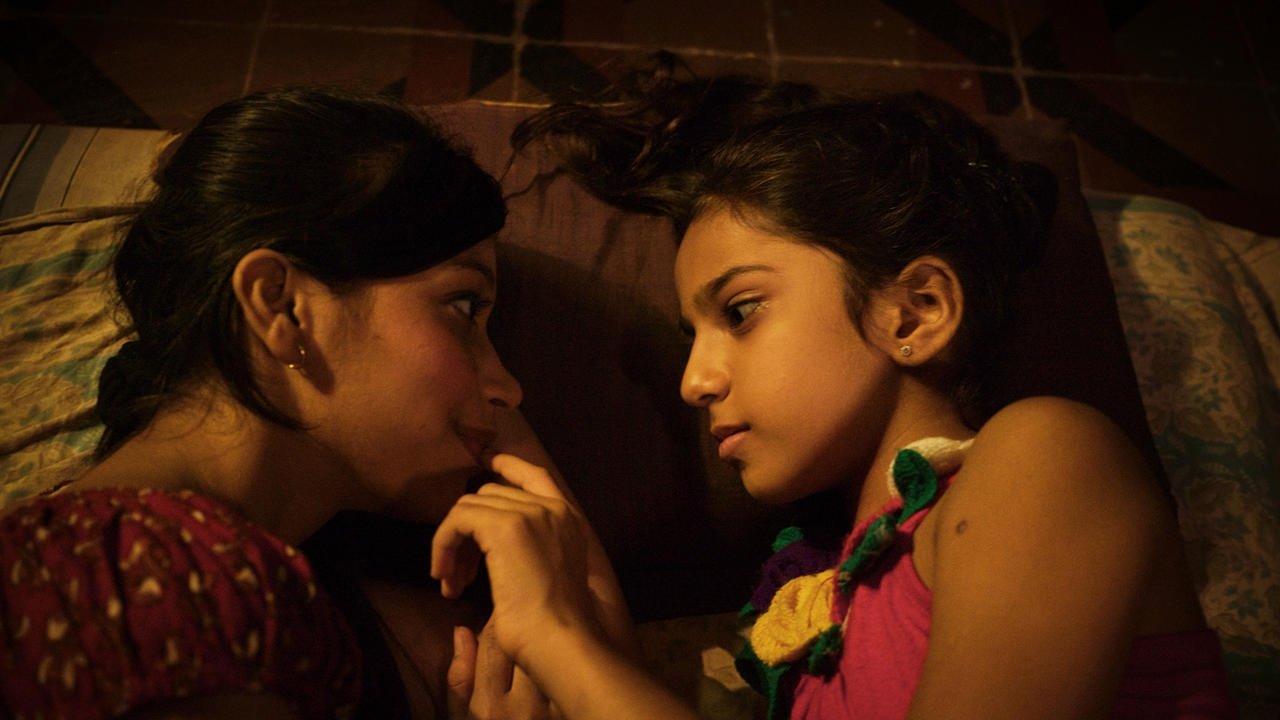In one of the first scenes, when Joshi wakes up from a dream about his missing daughter and lifts his head from the table to look around, he sights a colleague reading a book of poetry on one side, and a small shelf dedicated to the worship of Hindu Gods on the other. We are immediately alerted about the lack of escape – poetic or spiritual – in Joshi’s life. His mental state only permits him wakeful fantasies which so superbly diffuse into his reality, that it becomes difficult to tell them apart. Director Partho Sen-Gupta, famous for his award-winning debut “Let the Wind Go”, poignantly captures this harrowing in-betweenness in his film, Sunrise (Arunadoy) (2014) – an otherwise familiar tale of child abduction – facilitated by Adil Hussain’s spellbinding performance.
Lakshman Joshi, the protagonist, father, and police inspector, played by Adil Hussain, lost his daughter, Aruna, when she was merely six years old. He is continuously on the lookout for her, as he travels to and fro the police station, chasing a shadow down the rainy city’s underbelly. His wife, Leela Joshi, is equally traumatized by this kidnapping and continues to live in her past life. In a brilliant scene, when Joshi gets into bed with his wife, Leela (played by Tannishtha Chatterjee) breaks away from his caresses to announce that she has to be taken to the hospital. Their tender relationship despite their fragmented sense of reality adds a note of care and recognition, also visible between the new girl and Komal at Paradise, to an otherwise gritty plot. Joshi is continuously alerted by murders and missing cases going on in the neighborhood, but he seems to dart away towards the shadow that he believes is responsible for his daughter’s kidnapping.
The film efficiently fuses his dreams of having found his daughter with the grim reality of her absence, conveniently centering itself around a nightclub called Paradise where young, underaged girls are put on a show for lusting, old men. The irony is easy to spot. The scenes which glimpse into the lives of the girls who perform at Paradise are not new in Indian cinema. Like in Mira Nair’s Salaam Bombay! (1988), a young girl is brought to the grandmother’s care and prepared to be exhibited at Paradise. Unlike the former, this young girl doesn’t resist being dolled up, she is too young to understand what is happening until the end of the film. The performing girls at Paradise are abused, traded for money, and bear an expressionless acceptance of their fate on their faces. The plight of the girls is held up, but is Lakshman Joshi successful in rescuing them from the literal hell-hole in Paradise? We don’t know. This lack of clarity in the plot runs the risk of either going down well with its audience or threatens to remain lost on them – there is no middle ground here.
Cold fluorescent colors inside buildings and ochre-hued street lamps sometimes tearing through the murky darkness along with the sound of incessant downpour lends the film a noir effect that successfully fits the environment of crime which occupies the plot. In a significant scene, when Joshi clutches at his hair and screams into the void of his apartment, the audience only looks at the distorted expression on Hussain’s face. It recalls the famous Edvard Munch painting, The Scream. The expression leaves the audience shuddering at the nature of the protagonist’s evocation of fear mixed with horror, and we are reduced to pity Lakshman Joshi. Hussain stands out in Joshi’s character, and almost solely pulls the film on his shoulders.
The word ‘arunadoy’, in Marathi. literally means ‘sunrise’. However, we never see anything beyond the rainy nights of the unsuccessful chase in this film. Perhaps, Sen-Gupta wanted the movie to dwell in a state of transition, like the time of sunrise marks the transition between day and night, between hopelessness and hopefulness. His mastery lies in leaving the audience contemplating the reality of crimes against children in India, as they are swept completely into the fantastical realm of light, hope, and happiness by the end of the film. The film was awarded prestigious titles like the Best Film at Durban International Film Festival, 2015, and the One Future Prize at Munich International Film Festival, 2015.







![The Way Back [2020] Review – An Emotionally Satisfying Personal Redemption Story](https://79468c92.delivery.rocketcdn.me/wp-content/uploads/2020/03/The-Way-Back-2020-768x494.jpg)
![War for the Planet of the Apes [2017]: Ferocious, Raw and Poignant](https://79468c92.delivery.rocketcdn.me/wp-content/uploads/2017/07/gallery1-gallery-image-768x413.jpg)

![Montana [2017]: ‘TIFF’ Review](https://79468c92.delivery.rocketcdn.me/wp-content/uploads/2017/08/MONTANA_01-768x384.jpg)